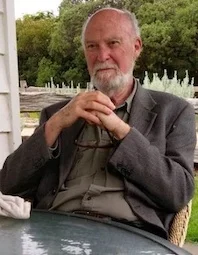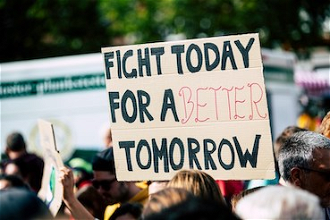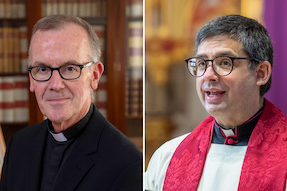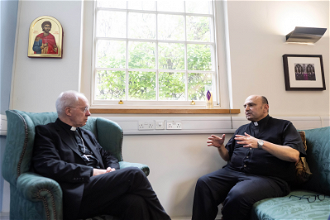Ian Linden: Immigration or inequality?

Dr Ian Linden
The manipulation of public anxiety about immigration has become an important element in Party politics here in Britain. With the economy flat-lining, against a background of a million job vacancies, debilitating understaffing in the NHS and social care, hostility to immigration seems odd. But at a time of economic distress, an appeal to xenophobia, subtle or open, and the stoking of anger against urban elites, (sometimes merited) brings approval and votes - as Geert Wilders in the Netherlands has recently demonstrated.
Anti-immigration rhetoric offers a scapegoat for a plethora of ills including the failure of governments to provide hope, justice and a sense of wellbeing for their citizens. From an America further divided by Trump to Orban's authoritarian Hungary democracy looks in bad shape. The reasons are varied, the problems seemingly intractable but, as Donald Tusk's electoral victory in Poland over the Law & Justice Party (PiS) showed, the direction of travel is not always towards far-right extremism ((Denis McShane 'Geert Wilders: far-Right bogeyman or old Dutch cheese' 25 November 2023). And, yes, the far-Right can soften its position once in power.
Worldwide, political Parties believe that if they are to have a reasonable hope of electoral success they must promise to control immigration. In Britain the fear of 'them' taking our jobs, our housing, places in our schools, is an understandable consequence of growing impoverishment and the accelerating erosion of the welfare state with its universal public services. Voters' number one priority according to UK opinion polls is the cost of living. For growing numbers in the lowest income decile in the UK, the sixth largest economy in the world, this means the lack of basic material necessities, not being able to make ends meet. Some 4.2 million British children are growing up in poverty.
Peter Mandelson, Gordon Brown's Business Secretary, speaking in 1998, was "intensely relaxed about people getting filthy rich - as long as they paid their taxes". By 2012 he had retracted these sentiments and was worried about rising inequality and failure to increase middle class disposable incomes. By 2021, the top decile in the UK owned almost half our national wealth. The bottom decile received c. 3%. Or put even more starkly, the richest 1% of the population were worth £2.8 trillion, more than the £2.4 trillion owned by 70%, some 48 million people.
Mandelson warned against "business and bank bashing" yet banks make themselves targets. Money tucked away in tax havens is measured in billions while investment in the UK continues to stagnate and investment bankers get richer alongside the CEOs of public companies. The EU cap on bankers' bonuses has been scrapped by the Government. The salaries of CEOs in energy companies, and their shareholder dividends, are eye-watering while their customers struggle with bills.
You will not find the word 'inequality' in Chancellor Jeremy Hunt's recent Autumn Statement. Nor did he quote the words of King Lear "So distribution should undo excess, and each man have enough". Hunt's 'levelling up' measures mean an aspiration to equalise growth around the country; our geographical inequality is the worst in the OECD. His updating of benefits by 10% leaves them at the lowest level since 1990. He does mention 'poverty' but close to the end of his speech and then only in the context of measures 'to get people back to work'.
Britain has become one of the most unequal societies in Europe, more unequal than Romania and Latvia according to the EU inequality index. Does it matter? Yes. In a new Cost of Inequality Report, the Equality Trust, a public policy think-tank, asserts that such a level of inequality "has made the UK more unhealthy, unhappy and unsafe than our more equal peers" and puts its economic cost at over £100 billion.
To read on see: www.ianlinden.com/latest-blogs/immigration-or-inequality
Professor Ian Linden is Visiting Professor at St Mary's University, Strawberry Hill, London. A past director of the Catholic Institute for International Relations, he was awarded a CMG for his work for human rights in 2000. He has also been an adviser on Europe and Justice and Peace issues to the Department of International Affairs of the Catholic Bishops Conference of England and Wales. Ian chairs a new charity for After-school schooling in Beirut for Syrian refugees and Lebanese kids in danger of dropping out partnering with CARITAS Lebanon and work on board of Las Casas Institute in Oxford with Richard Finn OP. His latest book was Global Catholicism published by Hurst in 2009.





















